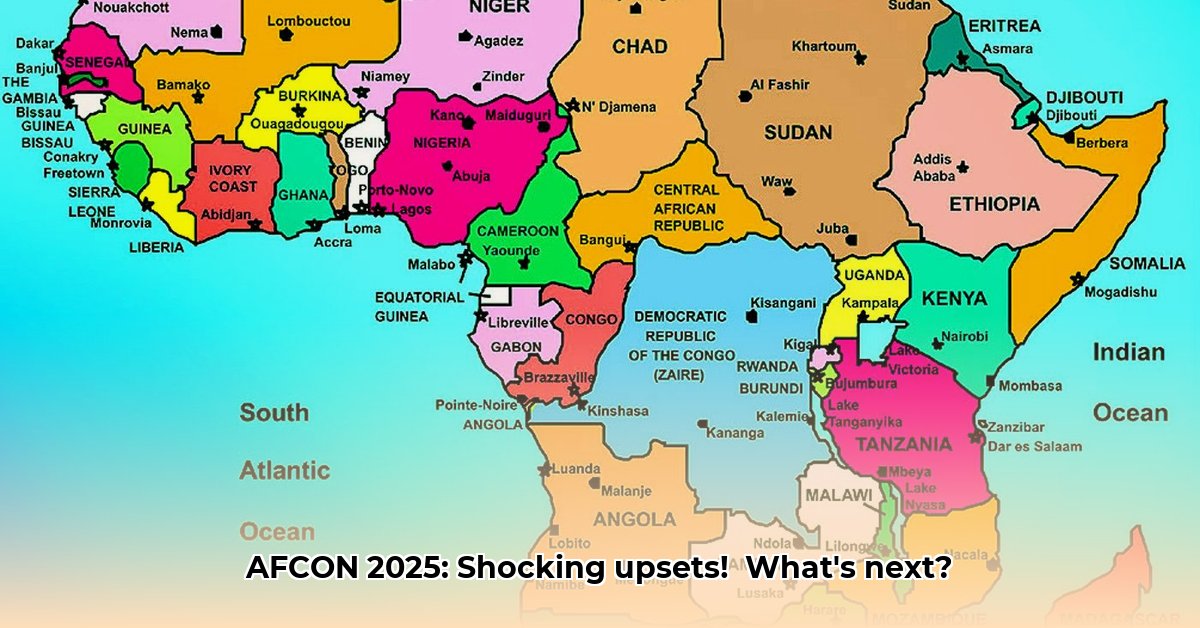
The 2025 Africa Cup of Nations (AFCON) delivered a series of stunning upsets, leaving fans, pundits, and administrators alike reeling. Giant-killings became the norm, highlighting a rapidly shifting competitive landscape and underscoring the urgent need for strategic investment across the continent. South Africa's U20 team’s victory, after a 28-year drought, perfectly encapsulates this seismic shift – a testament to improved youth development, but also a stark reminder of the existing infrastructure disparities. This analysis delves into the reasons behind these unexpected results, exploring the underlying factors and proposing actionable strategies to ensure the AFCON's continued growth and competitiveness.
The Great Upsets: A Closer Look
The qualifying rounds were a whirlwind of surprises. While expected powerhouses like Senegal secured victories (e.g., against Burundi), other heavyweights suffered unexpected defeats, such as Congo's loss to Uganda. These outcomes vividly illustrate a rising competitive balance, where no team can afford complacency. But what's driving this dramatic transformation?
| Team | Result | Significance |
|---|---|---|
| South Africa U20 | Victory | Demonstrates the impact of focused youth development. |
| Senegal | Win | Maintains its strong position, but competition is intensifying. |
| Congo | Loss | Underscores the unpredictability of the modern AFCON. |
Isn't it fascinating how these seemingly isolated matches paint a broader picture of evolving competitiveness? This isn't just about luck; systemic changes are at play.
Why the Changes? A Deeper Dive
Several factors contribute to this exciting shake-up in the AFCON. Increased investment in youth development programs, exemplified by South Africa's U20 triumph, is a key driver. However, significant disparities in infrastructure and resources remain a major obstacle. While some nations boast state-of-the-art facilities, others lack even basic equipment. This uneven playing field undoubtedly influences on-field results. Addressing this inequality is paramount for a truly level playing field.
Building a Better Future for AFCON: A Step-by-Step Plan
To maintain the AFCON’s captivating dynamism and ensure its sustained growth, a multi-pronged, strategic approach is essential. This requires a collaborative effort, involving various stakeholders. Let's explore some key steps:
1. Empowering National Football Associations (NFAs): Investing in youth academies, upgrading training facilities, and developing comprehensive long-term talent development plans are crucial. Think of this as investing in the future stars of tomorrow.
2. Strengthening the Confederation of African Football (CAF): Improved match organization, sustainable revenue generation, and the creation of engaging digital platforms to connect with fans are vital for the tournament's financial health and wider reach.
3. Engaging Sponsors and Broadcasters: Creative sponsorship packages, long-term funding commitments, and exploring diverse revenue streams are essential to guarantee financial stability and growth.
4. Government Support: National governments must recognise investing in football as investing in the nation's future, providing substantial funding for infrastructure and youth development programs, and enacting supportive policies. This isn't just about sport; it's about nation-building.
Facing the Challenges: Risks and Regulations
The path forward is not without challenges. Political instability, player injuries, and the ever-present threat of corruption must be addressed. Robust contingency planning, comprehensive player health programs, and strictly enforced regulations are vital to mitigate these risks. Transparency and good governance are non-negotiable for the long-term health of AFCON.
Conclusion: A Vision for African Football
The Africa Cup of Nations transcends mere sporting competition; it's a powerful symbol of African unity, passion and talent. While the recent tournaments have unveiled a dynamic shift, strategic planning and collaborative efforts are crucial to capitalising on this momentum and ensuring the tournament’s continued success. The future of AFCON is bright, but only through concerted action can we truly unlock its full potential.